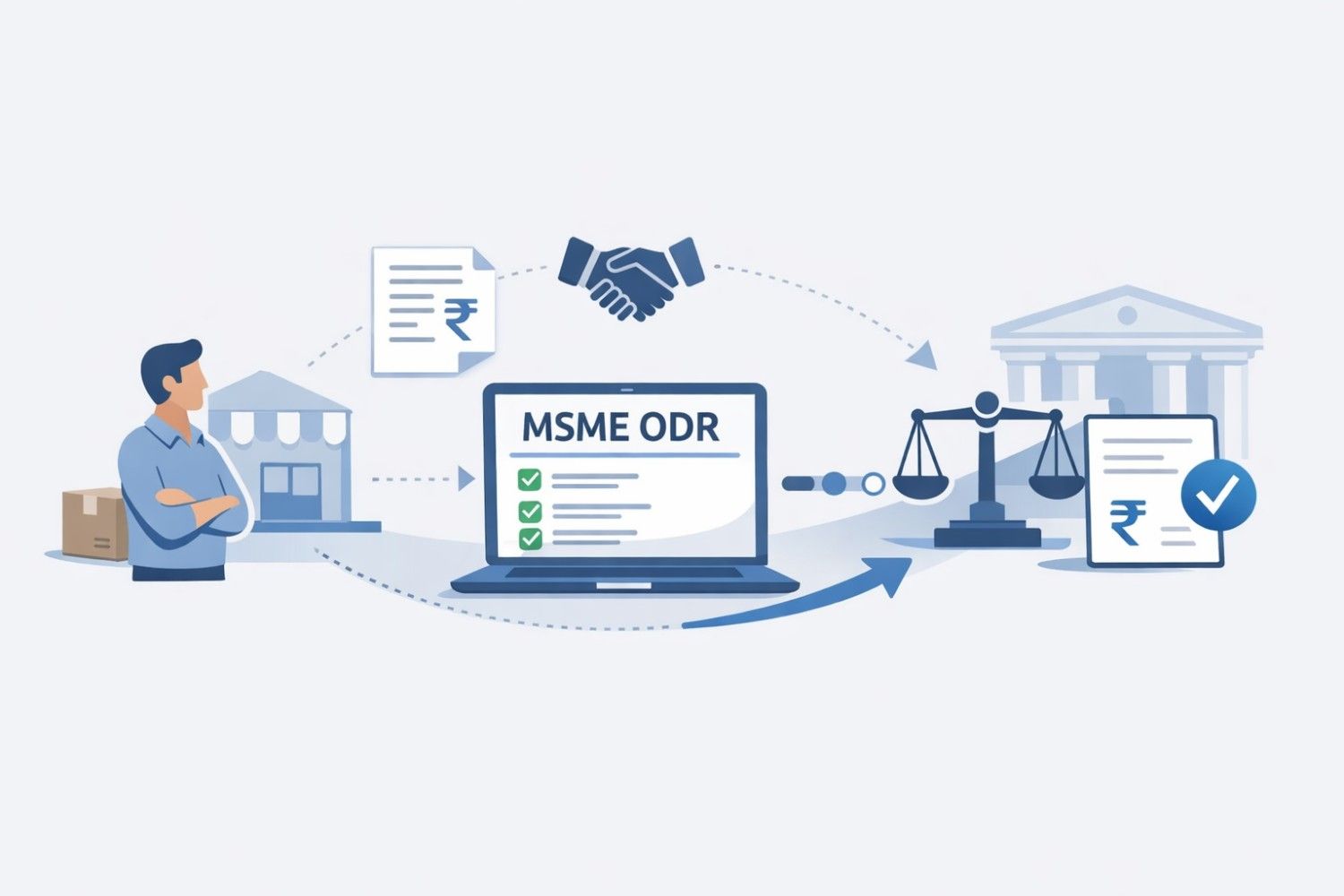Understanding Startup India Registration: Eligibility, Process, And Benefits
By the SolvLegal Team
Published on: Oct. 16, 2025, 5:01 p.m.

Introduction
Over the past decade, India has witnessed a remarkable transformation in its entrepreneurial landscape. Once dominated by large industrial houses and family-owned businesses, the economy is now powered by startups and first-generation entrepreneurs who are redefining innovation, technology, and employment. From fintech and healthcare to agritech and education, startups have become the backbone of India’s digital growth story.
Recognizing this potential, the Government of India launched the Startup India initiative on January 16, 2016, under the Department for Promotion of Industry and Internal Trade (DPIIT), Ministry of Commerce and Industry. The program was designed to encourage innovation, simplify regulatory hurdles, and create a robust ecosystem for startups to thrive. The initiative not only provides legal recognition to startups but also extends a range of benefits including tax exemptions, funding opportunities, and easier compliance procedures.
However, despite its widespread popularity, many budding entrepreneurs remain unaware of the eligibility criteria, registration process, and the tangible benefits of getting recognized under the Startup India scheme. Some even confuse it with MSME or Udyam registration, leading to missed opportunities and compliance errors.
This blog aims to provide a comprehensive guide on Startup India registration explaining who qualifies, how to apply, and why it matters. Whether you’re an aspiring founder, a small business owner planning to scale, or a legal advisor helping clients navigate compliance, this guide will help you understand everything you need to know about Startup India registration.
What is Startup India Registration?
Startup India Registration is the formal recognition granted by DPIIT to eligible businesses that meet the government’s definition of a “startup.” This recognition enables startups to access the benefits announced under the Startup India Action Plan, including tax incentives, funding support, and ease of doing business initiatives.
A startup recognized by DPIIT is seen as a legitimate, innovation-driven business contributing to economic growth, technological development, and job creation. This recognition provides startups with a unique identity within the Indian entrepreneurial ecosystem, signalling credibility to investors, customers, and regulatory authorities.
The Startup India program’s vision is simple yet powerful to make India a global hub for innovation by supporting early-stage entrepreneurs and reducing barriers to entry.
Eligibility Criteria for Startup India Registration
To qualify for Startup India registration, a business must meet specific conditions outlined by the DPIIT. These criteria ensure that only genuine, innovation-led entities benefit from the initiative. The eligibility requirement of Startup India Registration are:
· Entity Type - The business must be registered as a Private Limited Company (under the Companies Act, 2013), a Limited Liability Partnership (LLP), or a Registered Partnership Firm.
· Company Age - The entity should be less than 10 years old from the date of incorporation or registration.
· Annual Turnover- The company’s turnover should not exceed ₹100 crores in any financial year since incorporation.
· Innovation Focus- The business must be working towards innovation, development, or improvement of products, processes, or services, or a scalable business model with potential for job or wealth creation.
· Not Formed by Reconstruction- The startup must not have been formed by splitting up or reconstructing an existing business or entity.
Entities fulfilling all these conditions are eligible to apply for DPIIT recognition and avail Startup India benefits. In this blog we have discussed Step-by-Step Process for Startup India Registration. The registration process under the Startup India scheme is entirely online and user-friendly. Here’s a detailed walkthrough:
Step 1: Incorporate Your Business
Before applying for Startup India recognition, ensure your business is legally incorporated as a Private Limited Company, LLP, or Partnership Firm.
You’ll need:
· Certificate of Incorporation or Registration
· PAN of the entity
· Registered office address proof
Step 2: Register on the Startup India Portal
Visit the official Startup India website startupindia.gov.in. Create an account using your email ID and log in to the dashboard. Under the “Schemes & Benefits” section, select “DPIIT Recognition for Startups.”
Step 3: Fill in the Application Form
Provide details such as:
· Business name, nature, and sector
· Founders’ details
· Funding stage
· A brief about your product or innovation
Attach the following documents:
· Incorporation certificate
· Details of directors/partners
· Proof of concept (pitch deck, prototype, patent, or website)
· Brief write-up describing innovation or scalability
Step 4: Submit for Review
Once submitted, the DPIIT reviews your application. If approved, your business will receive a Certificate of Recognition confirming your status as a Startup India-registered entity.
The entire process usually takes 7–10 working days, depending on document accuracy.
Key Benefits of Startup India Registration
Once recognized, startups enjoy several financial, legal, and operational benefits designed to ease growth and compliance.
1. Tax Exemptions
· Income Tax Holiday (Section 80-IAC): Recognized startups are eligible for a 100% tax exemption on profits for three consecutive years within the first 10 years of incorporation.
· Capital Gains Exemption: Exemption under Section 54GB and Section 56(2)(viib) for investments in eligible startups.
2. Simplified Compliance and Self-Certification
Startups can self-certify under labour and environmental laws, reducing inspection frequency and administrative hassle.
Applicable laws include:
· Payment of Gratuity Act, 1972
· Contract Labour (Regulation and Abolition) Act, 1970
· Industrial Disputes Act, 1947
· Water (Prevention & Control of Pollution) Act, 1974
3. Access to Funding Support
The government established a Fund of Funds for Startups (FFS) managed by SIDBI, which invests in SEBI-registered venture capital funds that, in turn, invest in DPIIT-recognized startups. This indirect funding model boosts access to capital, particularly for early-stage and innovation-driven startups.
4. Government Procurement Benefits
Recognized startups can participate in government tenders without meeting prior turnover or experience criteria. This provides fair opportunities for new businesses to collaborate with public sector enterprises.
5. Intellectual Property (IP) Assistance
Startups receive:
· Fast-track patent examination
· 80% rebate on patent filing fees
· 50% rebate on trademark registration fees
· Support from facilitators under the government’s IP protection scheme.
6. Networking and Mentorship Opportunities
Startup India organizes various incubation programs, hackathons, mentorship sessions, and global summits. Recognized startups gain visibility and networking opportunities with investors, accelerators, and corporate partners.
7. Faster Exit Mechanism
Under the Insolvency and Bankruptcy Code (IBC), 2016, recognized startups can be wound up within 90 days, compared to the usual 180 days for other entities. This ensures quick exit and resource reallocation for founders. Here are common Pitfalls to Avoid while registering your startup:
1. Submitting incomplete or inconsistent documents.
2. Lack of clarity on the startup’s innovative element.
3. Mixing up DPIIT registration with MSME/Udyam registration.
4. Failing to update compliance status after recognition.
5. Applying without formal incorporation.
Why Startup India Registration Matters
Startup India registration isn’t just a government formality it’s a strategic growth enabler. For early-stage founders, it enhances credibility among investors, simplifies compliance, and offers tangible financial advantages.
Beyond the benefits, recognition represents a commitment to innovation and transparency. It connects entrepreneurs to India’s expanding ecosystem of incubators, accelerators, investors, and policymakers. In a global environment where startups compete for funding and market share, a DPIIT-recognized startup enjoys not just legitimacy but also trust an invaluable asset in business.
Conclusion
The Startup India initiative symbolizes India’s shift from a job-seeking economy to a job-creating economy. By recognizing and empowering entrepreneurs, it provides a structured platform to innovate, scale, and compete globally. Whether you’re building a tech startup, a social enterprise, or a niche service business, DPIIT recognition offers a strong foundation for compliance, growth, and sustainability. A great idea becomes a lasting enterprise only when backed by structure and foresight.
SolvLegal assists startups with incorporation, DPIIT recognition, and legal documentation ensuring your business is built on the right legal framework from day one. Because when your startup is legally secure, your vision can grow without limits.
ABOUT THE AUTHOR
This blog is authored by Shridansh Tripathi, a second-year law student at the Department of Legal Studies and Research, Barkatullah University, Bhopal.
REVIEWED BY
This article was reviewed by Prakhar Rai, a seasoned corporate lawyer. He advises extensively on intellectual property, contracts, mergers and acquisitions, and private equity and venture capital. His work also includes data protection and privacy, regulatory and compliance advisory, white-collar crime, technology and startup law, and commercial dispute resolution.
DISCLAIMER
The information provided in this article is for general educational purposes and does not constitute legal advice. Readers are encouraged to seek professional counsel before acting on any information herein. SolvLegal and the author disclaims any liability arising from reliance on this content.





